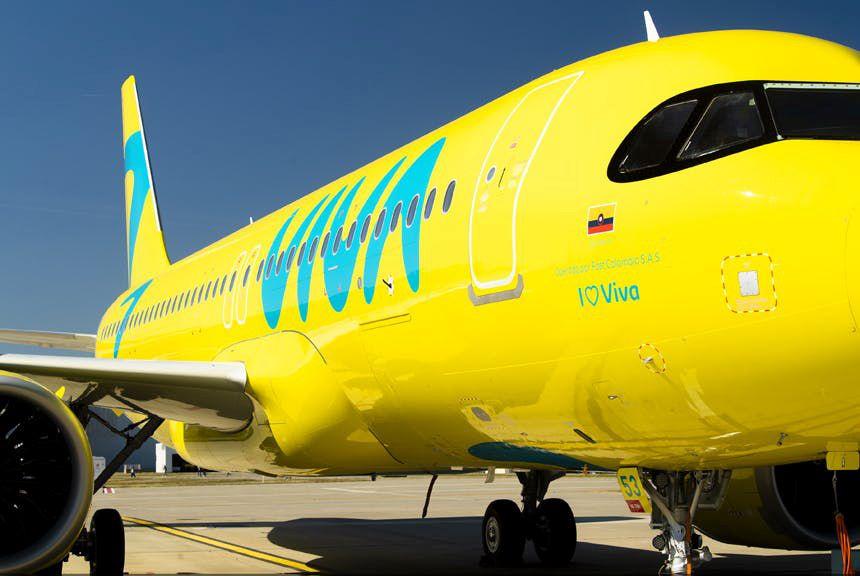
Colombia’s aviation sector has been in a constant state of upheaval since the start of 2023, and it is anyone’s guess how the composition of the market will change.
The country’s first ULCC Viva, started the year in a precarious financial state driven by fuel price volatility and currency headwinds. The company had spent months waiting for government regulators to approve its acquisition by Colombia’s largest airline Avianca. When it entered into a voluntary restructuring in February, Viva said it had been unable to access capital for the previous nine months—a time frame that aligns with Avianca’s announcement of its plans to acquire Viva in April 2022.
Near the end of February, Viva ceased operations, but not before LATAM Airlines Colombia and South American ULCC group JetSMART both expressed an interest in buying Viva, though no formal offers were made.
On March 20, Colombia’s civil aviation regulator Aerocivil approved the Avianca-Viva deal, but with stipulations that the companies agree to issue refunds for Viva’s canceled flights and maintain the ULCC’s business model. Additionally, Aerocivil said the operators would need to return in-demand slots at Bogota El Dorado International airport for the summer and winter seasons.
Avianca said it is studying Aerocivil’s decision but noted that Viva’s situation has changed as the ULCC no longer has the route network, aircraft or workers it had prior to temporarily ceasing operations.
At the start of 2023, Viva had roughly 22 aircraft—a mix of Airbus A320ces/neos—in operation. Aviation Week Network’s Fleet Discovery database shows the airline now has 10 aircraft parked and two in storage. All of Viva’s aircraft were leased.
It is unclear what Avianca gains now by moving forward on its acquisition of Viva, which has been grounded for over a month. The longer Viva remains inactive, the more challenging re-launching will become. Viva’s lessors can likely find more stable homes for its in-demand narrowbody aircraft, and other operators are looking to fill the void. LATAM Airlines Colombia is in the process of adding five aircraft to its operations, and JetSMART is working to establish a new domestic operation in the country.
Clearly, the value of Viva to Avianca has diminished. Avianca now must calculate how Viva’s new reality and the changing dynamics of Colombia’s market will factor into its strategy for the future.
The Avianca-Viva drama is not the only set of theatrics occurring in the market. On March 16, JetSMART said it had commenced a due diligence process to acquire another Colombian ULCC, Ultra Air. The airline made its debut in February 2022 and has five A320ceos in service and a single aircraft parked, according to Fleet Discovery.
Roughly six days after launching the due diligence process to acquire Ultra, JetSMART said it was not possible to continue with its intention to purchase the ULCC. Instead, JetSMART said it would continue the process of establishing its own Colombian operation after receiving approval earlier in March from the government to create a new carrier in the country.
Ultra Air has also encountered its own challenges, such as a recent operational disruption due to unexpected maintenance of two aircraft.
On top of that, on March 23, the Colombian government issued a statement saying Ultra Air had low liquidity, and mandated the airline provide the government with certain updates including negotiations regarding its capitalization, as well as preventive and corrective actions related to a passenger management plan in the event of “an eventual cessation and/or suspension of operations.”
On March 24, Ultra Air issued a statement via social media explaining that its shareholders, “making a great effort,” had capitalized the company by strengthening “its financial position and giving it continuity to the operation.” But Ultra Air also said the airline industry in Colombia remains complex, and it is necessary to work with the government to achieve long-term solutions.
JetSMART, meanwhile, said it hopes to launch operations in Colombia as soon as possible and “participate in the slot reassignment process at El Dorado airport.”
For now, the only constant in the Colombian air transport sector is flux. The next few weeks should prove interesting as the ongoing saga of Colombia’s carriers, and its market, evolves.
